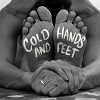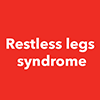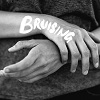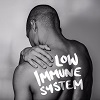Everyone gets tired from time to time, but if you feel exhausted every day, it may be that you are suffering from fatigue. How do you tell the difference between tiredness and fatigue?
A good first step towards understanding why you are feeling tired is to look at your lifestyle and daily stresses and strains. These might include:
- Lack of exercise1,2,3
- Lack of sleep4
- Too much physical activity5
- Excess caffeine intake6 or excess alcohol intake7
- Illnesses such as colds or flu5
If you are tired for one of these reasons, it is likely that your tiredness will not last very long and that you will feel better after exercising, resting, or getting more sleep.5
However if you are feeling exhausted, and this continues day after day, it could be that you are “more than tired” and are suffering from fatigue. If you are experiencing fatigue, you may feel physically and mentally exhausted and lack energy for a number of days each week, even if you have not been doing any physical activities that are particularly tiring.8 You may also be too exhausted to complete normal daily tasks such as getting dressed or going shopping, and you may often feel too tired to spend time with friends or family. Some people have described fatigue as feeling “listless”, “washed out” or “cranky”.
If you would like to understand whether the level of tiredness that you are feeling is normal or whether you might be fatigued you can take our Fatigue Survey to rate your level of tiredness.
Fatigue is common and is often the first problem that people mention when they visit their doctors.9 It is a complex symptom because it can be caused by many different underlying conditions, such as:
- Iron deficiency and iron deficiency anaemia10
- Anaemia due to other reasons, such as low levels of vitamin B12 or folate11
- Hormonal conditions such as hypothyroidism and diabetes12
- Chronic fatigue syndrome, also called myalgic encephalomyelitis (ME)2
- Depression2,13 and sleep problems4
- Iron overload, known as haemochromatosis,14 where too much iron can lead to iron building up in the organs of your body.15
Because there are so many reasons why you may experience fatigue it is important that you talk to your doctor to discuss how you feel in more detail. Your doctor is in the best position to diagnose fatigue and to discuss any possible treatment options with you.
If your fatigue is due to iron deficiency or iron deficiency anaemia, increasing your iron intake through your diet and, if necessary, through treatment can make you feel much better. This is why it is important to talk to your doctor and to be on the look-out for other signs that you might be iron deficient.
Signs of iron deficiency and iron deficiency anaemia
Symptoms suggesting iron deficiency and iron deficiency anaemia are generally vague and non-specific. As the condition progresses, they can become more severe.16
Symptoms I can feel
 Cold Intolerance
Cold Intolerance
If you often feel cold all over your body, or in your hands or feet, it may be due to iron deficiency. Iron plays an important role in a number of functions related to the proper regulation of body temperature. It is important to keep the body at a certain temperature and iron deficiency can hinder this process.
 Restless Leg Syndrome
Restless Leg Syndrome
If you have uncomfortable and strange sensations in your legs and feet, particularly when you are resting, and you feel the need to move your legs to get rid of the feeling, you may have restless leg syndrome. The feelings could be described as itching, burning, crawling or painful and affect your sleep. 16% of blood donors with iron depletion/deficiency had restless leg syndrome.
 Chewing ice
Chewing ice
One of the most common cravings that can be caused by iron deficiency is the unrelenting desire to eat or chew on ice. Regularly chewing on ice can damage your teeth and gums, so if you think you are suffering from this you should see you dentist as well as your doctor.
 Craving non-foodstuffs
Craving non-foodstuffs
Craving certain foods from time to time is normal, especially during pregnancy. However, unusual cravings to eat things such as clay, dirt, ash and starch can be caused by iron deficiency. Wanting to eat non-food items is known as ‘pica’. 11% of blood donors who were iron deficient or iron depleted had pica.
 Mental Fatigue
Mental Fatigue
Fatigue is a permanent sense of feeling worn out, and can be a mental exhaustion as well as a physical one. Having iron deficiency can affect your ability to concentrate and your short-term memory, and you may feel irritable and lose concentration quickly.
If you often feel cold all over your body, or in your hands or feet, it may be due to iron deficiency. Iron plays an important role in a number of functions related to the proper regulation of body temperature. It is important to keep the body at a certain temperature and iron deficiency can hinder this process.
If you have uncomfortable and strange sensations in your legs and feet, particularly when you are resting, and you feel the need to move your legs to get rid of the feeling, you may have restless leg syndrome. The feelings could be described as itching, burning, crawling or painful and affect your sleep. 16% of blood donors with iron depletion/deficiency had restless leg syndrome.
One of the most common cravings that can be caused by iron deficiency is the unrelenting desire to eat or chew on ice. Regularly chewing on ice can damage your teeth and gums, so if you think you are suffering from this you should see you dentist as well as your doctor.
Craving certain foods from time to time is normal, especially during pregnancy. However, unusual cravings to eat things such as clay, dirt, ash and starch can be caused by iron deficiency. Wanting to eat non-food items is known as ‘pica’. 11% of blood donors who were iron deficient or iron depleted had pica.
Fatigue is a permanent sense of feeling worn out, and can be a mental exhaustion as well as a physical one. Having iron deficiency can affect your ability to concentrate and your short-term memory, and you may feel irritable and lose concentration quickly.
Symptoms I can see
 Cracks & Ulcers in your Mouth
Cracks & Ulcers in your Mouth
Mouth ulcers are sore white patches on the inside of your mouth. There are many reasons why you might have mouth ulcers, including biting the inside of your mouth, stress and being run-down, but another reason could be iron deficiency.
 Easy Bruising
Easy Bruising
A bruise appears when you have damaged the blood vessels beneath the skin enough for a little bit of blood to leak out. If you have iron deficiency, this may happen more easily. Easy bruising is a sign of iron deficiency.
 Paleness
Paleness
Haemoglobin is a red-coloured pigment. If you have severe iron deficiency, there may be less haemoglobin in your blood and you may look pale. The is paleness easier on their face, nails, inner mouth and lining of the eyes. If you pull your lower eyelid down and it is a very pale peach colour or yellow, this may indicate that you have iron deficiency or iron deficiency anaemia.
 Brittle or Spoon-Shaped Nails
Brittle or Spoon-Shaped Nails
Iron deficiency can be related to abnormalities of the color, shape, or texture of nails. In particular, nails that are dipped in the middle and raised at the edges to give a rounded appearance like a spoon associated with iron deficiency anaemia.
Your nails can grow 3mm in a month. To grow strong, healthy nails require a mix of nutrients, including iron.
 Hair Loss
Hair Loss
It is natural for some hair to fall out when you are washing or combing it, but if you are losing clumps of hair, or more hair than normal, it could be caused by iron deficiency. Increasing your iron levels could stop or reduce your hair loss.
Every hair on your head is replaced every 3-5 years. To keep a healthy head of hair you need iron.
Mouth ulcers are sore white patches on the inside of your mouth. There are many reasons why you might have mouth ulcers, including biting the inside of your mouth, stress and being run-down, but another reason could be iron deficiency.
A bruise appears when you have damaged the blood vessels beneath the skin enough for a little bit of blood to leak out. If you have iron deficiency, this may happen more easily. Easy bruising is a sign of iron deficiency.
Haemoglobin is a red-coloured pigment. If you have severe iron deficiency, there may be less haemoglobin in your blood and you may look pale. The is paleness easier on their face, nails, inner mouth and lining of the eyes. If you pull your lower eyelid down and it is a very pale peach colour or yellow, this may indicate that you have iron deficiency or iron deficiency anaemia.
Iron deficiency can be related to abnormalities of the color, shape, or texture of nails. In particular, nails that are dipped in the middle and raised at the edges to give a rounded appearance like a spoon associated with iron deficiency anaemia.
Your nails can grow 3mm in a month. To grow strong, healthy nails require a mix of nutrients, including iron.
It is natural for some hair to fall out when you are washing or combing it, but if you are losing clumps of hair, or more hair than normal, it could be caused by iron deficiency. Increasing your iron levels could stop or reduce your hair loss.
Every hair on your head is replaced every 3-5 years. To keep a healthy head of hair you need iron.
Symptoms that slow me down
 Loss of Energy
Loss of Energy
We get energy from our food as sugar, fats and carbohydrates. The process to convert the food we eat into energy requires iron. If you feel constantly lacking in energy you could have iron deficiency.
To turn your breakfast into get up and go your body needs iron. If you always feel drained you could have iron deficiency
 Loss of Hearing
Loss of Hearing
Problems with your hearing or sudden hearing loss might be related to iron deficiency anaemia.
 Headaches
Headaches
Headaches and migraines can be caused by many things, including dehydration, stress or having a cold. But having iron deficiency may also affect how often you have migraines, and how bad they are.
If you think you are getting more migraines, or they are becoming more severe, you may have iron deficiency.
 Susceptibility to Infections
Susceptibility to Infections
Iron deficiency can cause poor immune function and predispose you to recurrent colds and infections. Iron is needed for your immune system to function properly.
Your body needs iron to defend itself against infections.
 Shortness of breath
Shortness of breath
Iron is essential for the movement of oxygen around your body and the production of energy in your muscles. If you are iron deficient, you may find you can’t exercise as much as you would like to or you get out of breath while doing simple things.
Having iron deficiency can reduce your exercise capacity.
We get energy from our food as sugar, fats and carbohydrates. The process to convert the food we eat into energy requires iron. If you feel constantly lacking in energy you could have iron deficiency.
To turn your breakfast into get up and go your body needs iron. If you always feel drained you could have iron deficiency
Problems with your hearing or sudden hearing loss might be related to iron deficiency anaemia.
Headaches and migraines can be caused by many things, including dehydration, stress or having a cold. But having iron deficiency may also affect how often you have migraines, and how bad they are.
If you think you are getting more migraines, or they are becoming more severe, you may have iron deficiency.
Iron deficiency can cause poor immune function and predispose you to recurrent colds and infections. Iron is needed for your immune system to function properly.
Your body needs iron to defend itself against infections.
Iron is essential for the movement of oxygen around your body and the production of energy in your muscles. If you are iron deficient, you may find you can’t exercise as much as you would like to or you get out of breath while doing simple things.
Having iron deficiency can reduce your exercise capacity.
 Irritability
Irritability
Exhaustion, mood swings and an inability to concentrate can cause frustration. If you feel that you are easily irritated, it may be a sign of iron deficiency.
 Memory loss
Memory loss
Are you forgetting little things more frequently? Talk to your doctor about what could be causing your short-term memory loss; it may be because of iron deficiency.
 Loss of libido
Loss of libido
A lack of iron can lead to a low sexual libido and erectile dysfunction. You should talk to a healthcare professional, if you are experiencing either.
Exhaustion, mood swings and an inability to concentrate can cause frustration. If you feel that you are easily irritated, it may be a sign of iron deficiency.
Are you forgetting little things more frequently? Talk to your doctor about what could be causing your short-term memory loss; it may be because of iron deficiency.
A lack of iron can lead to a low sexual libido and erectile dysfunction. You should talk to a healthcare professional, if you are experiencing either.
- Schwartz AL, Mori M, Gao R, Nail LM, King ME. Exercise reduces daily fatigue in women with breast cancer receiving chemotherapy. Med Sci Sports Exerc. 2001;33(5):718-723.
- Lewis G, Wessely S. The epidemiology of fatigue: More questions than answers. J Epidemiol Community Health. 1992;46:92-97.
- Valdini AF, Steinhardt SI, Jaffe AS. Demographic Correlates of Fatigue in a University Family Health Centre. Fam Pract. 1987;4(2):103-107.
- Åkerstedt T, Knutsson A, Westerholm P, Theorell T, Alfredsson L, Kecklund G. Mental fatigue, work and sleep. J Psychosom Res. 2004;57(5):427-433.
- Belza B. The impact of fatigue on exercise performance. Arthritis Care Res. 1994;7(4):176-80.
- Calamaro CJ, Mason TB a, Ratcliffe SJ. Adolescents living the 24/7 lifestyle: effects of caffeine and technology on sleep duration and daytime functioning. Pediatrics. 2009;123(6):e1005-10. doi:10.1542/peds.2008-3641.
- Prat G, Adan A, Pérez-Pàmies M, Sànchez-Turet M. Neurocognitive effects of alcohol hangover. Addict Behav. 2008;33(1):15-23. doi:10.1016/j.addbeh.2007.05.002.
- Dittner AJ, Wessely SC, Brown RG. The assessment of fatigue: a practical guide for clinicians and researchers. J Psychosom Res. 2004;56(2):157-70.
- Ridsdale L, Evans a, Jerrett W, Mandalia S, Osler K, Vora H. Patients with fatigue in general practice: a prospective study. BMJ. 1993;307(6896):103-6.
- Wood MM, Elwood PC. Symptoms of iron deficiency anaemia: A community survey. Br J Prev Soc Med. 1966;20:117-121.
- Smith DL. Anemia in the elderly. Am Fam Physician. 2000;62(7):1565-72.
- Nijrolder I, van der Windt D, de Vries H, van der Horst H. Diagnoses during follow-up of patients presenting with fatigue in primary care. CMAJ. 2009;181(10):683-7. doi:10.1503/cmaj.090647.
- Targum SD, Fava M. Fatigue as a Residual Symptom of Depression. Innov Clin Neurosci. 2011;8(10):40-43.
- McDonnell SM, Preston BL, Jewell SA, et al. A survey of 2,851 patients with hemochromatosis: symptoms and response to treatment. Am J Med. 1999;106(6):619-24.
- Schümann K, Elsenhans B, Mäurer a. Iron supplementation. J Trace Elem Med Biol. 1998;12(3):129-40. doi:10.1016/S0946-672X(98)80001-1.
- Auerbach M, Adamson J. How we diagnose and treat iron deficiency anemia Am J Hematol. 2016 Jan;91(1):31 -8 Koduru P, Abraham BP. The role of ferric carboxymaltose in the treatment of iron deficiency anemia in patients with gastrointestinal disease. Therap Adv Gastroenterol. 2016 Jan;9(1):76-85





